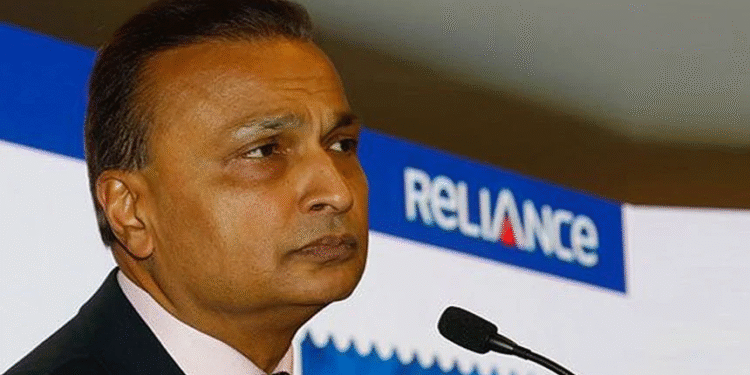New Delhi, India – July 2, 2025 – In a significant development in India’s corporate landscape, the State Bank of India (SBI), the country’s largest public-sector lender, has classified the loan account of Reliance Communications Limited (RCom) as “fraudulent” and announced its intention to report the company’s former director, Anil Ambani, to the Reserve Bank of India (RBI). The move, which stems from suspected financial irregularities dating back to August 2016, marks a critical escalation in the ongoing financial troubles of the once-prominent telecom giant.
Background of the Case
Reliance Communications, a key player in India’s telecommunications sector during the early 2000s, has been grappling with severe financial distress since accumulating a massive debt burden and facing intense competition in the telecom industry. The company, part of the Reliance Group led by Anil Ambani, has been under a Corporate Insolvency Resolution Process (CIRP) since June 2019, managed by a resolution professional under India’s Insolvency and Bankruptcy Code (IBC).
SBI’s decision follows a forensic audit that revealed alleged fund diversion and violations of loan terms in RCom’s financial dealings. In a letter dated June 23, 2025, and disclosed by RCom on July 1, 2025, SBI stated that responses to its show-cause notices were deemed insufficient, prompting the bank to categorize the loan account as fraudulent. The bank further noted that it would report Anil Ambani, who served as a director during the period in question, to the RBI under its regulatory guidelines for key management personnel in fraud cases.
Implications of the Fraud Classification
The classification of RCom’s loan account as fraudulent has far-reaching consequences. Under Indian banking regulations, such a designation triggers referral to enforcement agencies for potential criminal investigations and imposes a five-year ban on the borrower securing additional financing from regulated financial institutions. For Anil Ambani, the RBI report could lead to further scrutiny and potential disqualification from participating in RCom’s resolution process under Section 29A of the IBC, which bars individuals linked to fraudulent accounts from regaining control of insolvent companies.
Legal experts note that while RCom’s ongoing insolvency proceedings provide a moratorium on recovery actions under Section 14 of the IBC, this protection does not extend to fraud investigations. “The fraud classification can coexist with the insolvency process and may affect the company’s valuation and resolution plan, though it does not invalidate it,” said Akshat Khetan, founder of AU Corporate Advisory and Legal Services.
RCom’s Response and Ongoing Insolvency
In a regulatory filing to Indian stock exchanges, RCom emphasized that the loans in question predate its insolvency proceedings and must be addressed within the framework of its resolution plan or potential liquidation. The company, currently awaiting approval of a creditor-approved resolution plan from the National Company Law Tribunal (NCLT), stated that SBI’s classification is not expected to have an immediate impact on its operations. RCom has also indicated that it is seeking legal advice to determine its next steps.
Anil Ambani and the Reliance Group’s Struggles
Anil Ambani, once among India’s wealthiest business tycoons, has faced a series of setbacks following the 2005 split of the Reliance Group between him and his brother, Mukesh Ambani, who leads the highly successful Reliance Industries Limited. RCom, born out of the demerger, initially thrived but succumbed to mounting debts and fierce competition from newer telecom players, notably Mukesh Ambani’s Reliance Jio. The company’s market capitalization has plummeted to approximately ₹434 crore (around $51 million USD), with its shares trading at ₹1.57, a staggering 99% decline from their peak.
The fraud classification is not the first such instance for RCom. In November 2024, Canara Bank also labeled RCom’s account as fraudulent, though the decision was temporarily stayed by the Bombay High Court. The renewed scrutiny from SBI adds to the challenges facing Anil Ambani, whose Reliance Group is attempting a revival through ventures in clean energy and defense. Recent tender wins and partnerships have sparked some optimism, but the fraud allegations cast a shadow over these efforts.
Broader Context and Investor Sentiment
The SBI’s action has drawn significant attention in India’s financial markets, with RCom’s shares coming under renewed pressure. Investors are closely monitoring the developments, as the fraud tag and regulatory reporting could further erode confidence in the company’s prospects. The case also underscores the Indian banking sector’s increasing vigilance in addressing non-performing assets and financial misconduct, particularly in high-profile corporate defaults.
For global observers, the situation highlights the complexities of India’s insolvency framework and the challenges of resolving distressed assets in a competitive and rapidly evolving market. As RCom navigates its insolvency process and Anil Ambani faces potential legal repercussions, the outcome of this case could set important precedents for corporate governance and accountability in India’s corporate sector.
What Lies Ahead
As the RBI reviews SBI’s report, attention will shift to whether enforcement agencies initiate criminal proceedings against those involved. The NCLT’s decision on RCom’s resolution plan will also be critical in determining the company’s future. For Anil Ambani, the fraud classification represents a significant personal and professional setback, potentially limiting his ability to steer the Reliance Group’s recovery.
The unfolding saga of Reliance Communications serves as a cautionary tale of the risks of over-leveraging and the long-term consequences of financial mismanagement in a dynamic global economy. As the situation develops, stakeholders worldwide will be watching closely to see how India’s regulatory and legal systems address this high-stakes corporate crisis.





































